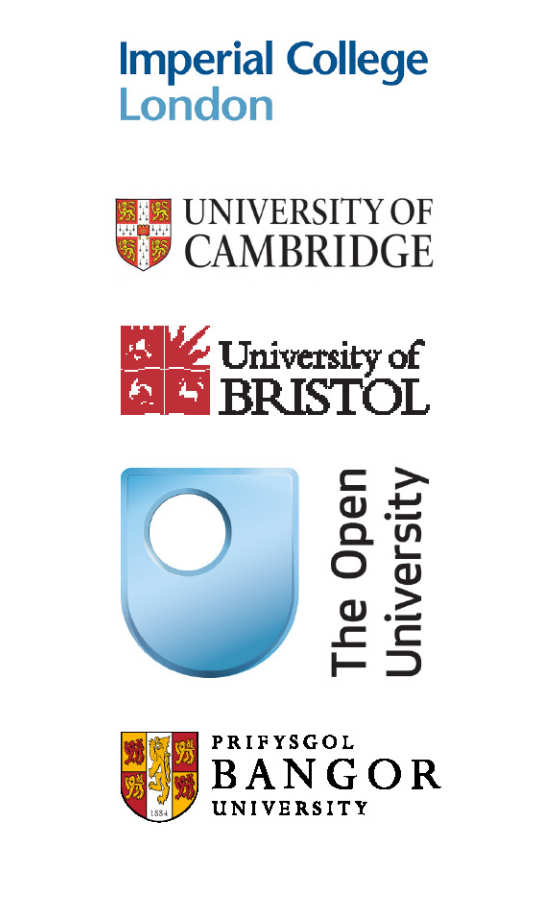Summer research placements - summer 2025
On this webpage you can learn about and apply for summer placement opportunities in summer 2025.
Placements are made available across the partners comprising the CDT: Bangor University, University of Bristol, University of Cambridge, Imperial College London and The Open University. Where possible we will run placements synchronously (or as close as possible) in order to provide students with a cohort experience.
Please read the FAQs below for further information. If your question is not answered below, please contact Dr Jon Tate.
Current summer research placement projects
Applications have now closed. If you would like to be informed when 2026 projects are available, please contact Dr Jon Tate to be added to the mailing list.
FAQs
What is the duration of a summer placement?
We intend for summer placements to last around 8-10 weeks in the months of June, July, August and September. All placements will conclude before the beginning of October. Exact timeframes will be agreed when an offer is made to the student.
Will the summer placement be funded?
It is our policy to provide summer placement students with the current National (or London) Living Wage. Exact funding will be agreed when an offer is made to the student.
What are the eligibility criteria?
The student should be registered to an undergraduate programme at UK university studying a degree with some relevance to the placement they are applying for. Ideally the student will be in their second or third year of said degree.
There are no nationality or residency requirements.
Students should be willing to relocate to the location of the placement where applicable.
Can I apply for more than one project?
Yes, you are allowed to apply for multiple projects.
What work will I do?
Nuclear is a broad subject so it is difficult to be prescriptive about the work undertaken. The project descriptions will provide information here, and you can always contact the project supervisor for further information.
The expectation is that at the end of your placement you will deliver a presentation of the work undertaken to a CDT co-Director, your project supervisor and wider research group, and other members of your summer placement cohort.
How do I apply?
Students that would like to apply for a summer placement should send the following documents to Dr Jon Tate with the title of the project in the e-mail title:
- CV/Resume
- Cover Letter detailing your motivation
- Contact details of one academic reference
What is involved in the application process?
Your application will be reviewed by the CDT Director Dr Mark Wenman, the CDT Manager Dr Jon Tate, and the supervisor for the project.
Students that pass this first stage will be invited to a short MS Teams interview where they can be expected to be asked questions about their motivation for the summer placement, their career aspirations, and some technical questions about the project area.
A shortlist of up to three students will be created, and we will work down that shortlist until the successful student confirms they would like to accept the offer of the placement.
